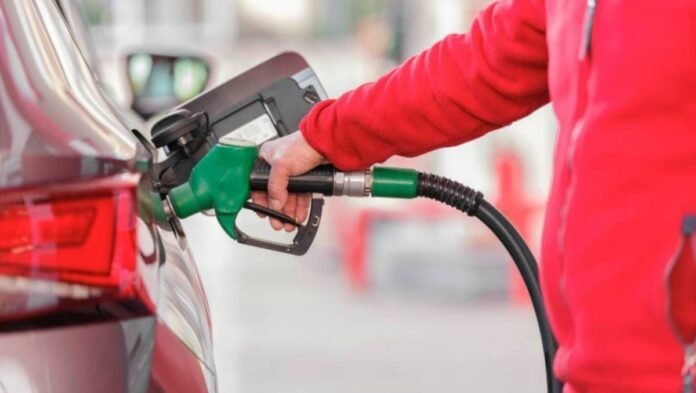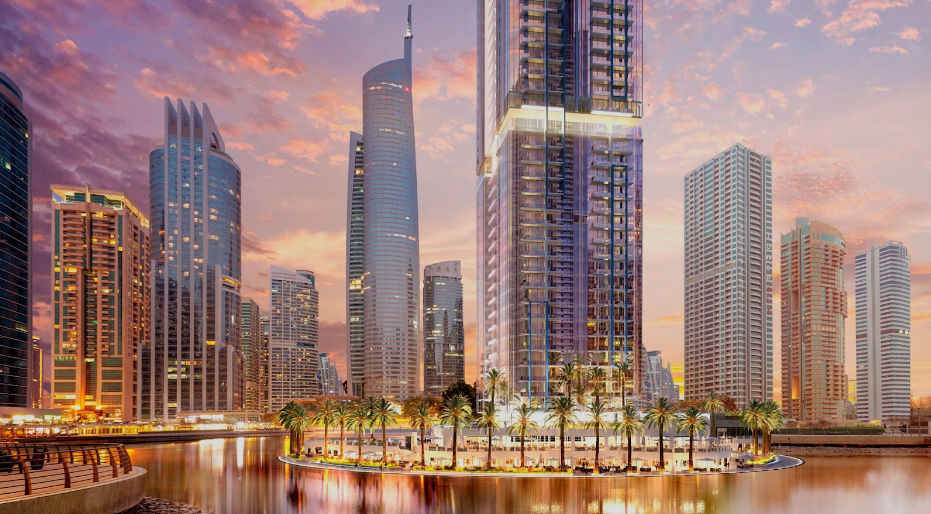Fuel prices affect everyone in the UAE – from daily commuting across Dubai’s busy highways to long road trips across Abu Dhabi’s large landscape. With global oil markets swinging wildly, drivers in the UAE often check their apps or news feeds monthly, asking themselves if the next petrol fill will cost a further hole in their wallets. The start of October 2025 brings a modest bump in prices, emphasizing how interconnected price increases are to global events. This is always a topic of conversation at coffee shops and family gatherings. While prices may have only gone up by a few fills, it adds up quickly for households and businesses.
The article will provide information on the new prices, the various changes, the experience with the current world prices, and how they relate to the price variation of Petrol fuel. The article will give readers clear facts and figures, a timeframe with a combination of tips, compared to stability, allowing readers to draw their own conclusions on managing shared gasoline and how prices affect very basic daily living.
Current UAE Fuel Prices for October 2025
Starting on October 1, 2025, the UAE Fuel Price Committee announced the new fuel prices, which are higher across the board compared to September. These prices will be the same throughout the nation at stations like ADNOC, ENOC, and Emarat. Here are the costs for each type of fuel:
- Super 98: Dh2.77 per liter
- Special 95: Dh2.66 per liter
- E-Plus 91: Dh2.58 per liter
- Diesel: Dh2.71 per liter
These prices are based on official announcements and are the poster price before VAT or other fees at the pump. Super 98, the high-octane option desired by high-performance cars, is the most expensive, while E-Plus 91 is the least expensive for everyday cars. The retail price of diesel, which is used by the truck and commercial fleet industry, is also more expensive than last month.
Drivers in Sharjah and Ras Al Khaimah will pay the same price in Dubai, which ensures consistency between emirates. These prices will stay in place until the end of the month, and there will be an adjustment at that point.
Recent Changes and Updates
October rates extend the rising trend of the last few months. Relative to September 2025, Super 98 increased from Dh2.70 to Dh2.77, up by 7 fills. Special 95 increased from Dh2.58 to Dh2.66, up by 8 fills. E-Plus 91 moved from Dh2.51 to Dh2.58, and diesel increased from Dh2.63 to Dh2.71.
This is in line with a trend in August, when Super 98 was Dh2.69 and Special 95 Dh2.57. In July, the levels were the same, with Super 98 at Dh2.70. Prices went down earlier in the year, in June, to Dh2.58 for Super 98, bringing some relief following higher prices in March (Dh2.73).
Price updates occur monthly, typically released on the final day of the prior month. UAE media such as Khaleej Times and Gulf News publish them promptly, usually with comparisons to enable monitoring of the changes. In October, the committee attributed the primary cause to increasing global crude oil benchmarks.
How Fuel Prices Are Determined in the UAE
Fuel prices in the UAE have a simple system implemented years ago in 2015, when the rates were liberalized to match global markets. The Fuel Price Committee, which falls under the Ministry of Energy and Infrastructure, has a monthly meeting to determine the figures.
They make decisions based on worldwide trends in oil, comparing S&P Global Platts benchmarks for petroleum products. That encompasses average crude oil and refined fuel prices. Regional demand and supply chain expenses factor into it, but the essence is linking local rates to global averages.
In contrast to fixed subsidies in other nations, this method is transparent and responsive. Prices are reviewed at the end of the month, with changes based on the previous period’s market performance. This maintains UAE prices competitive and spares excessive government interference.
Historical Trends in UAE Petrol Prices
Retrospection puts current numbers into perspective. Since deregulation in 2015, prices have oscillated in tandem with worldwide happenings, from oil booms to pandemics.
Here’s a table of recent historical prices, drawn from reliable records:
| Month | Super 98 | Special 95 | E-Plus 91 | Diesel |
| October 2025 | 2.77 | 2.66 | 2.58 | 2.71 |
| September 2025 | 2.70 | 2.58 | 2.51 | 2.63 |
| August 2025 | 2.69 | 2.57 | 2.50 | 2.78 |
| July 2025 | 2.70 | 2.58 | 2.51 | 2.63 |
| June 2025 | 2.58 | 2.47 | 2.39 | 2.45 |
| May 2025 | 2.58 | 2.47 | 2.39 | 2.52 |
| April 2025 | 2.57 | 2.46 | 2.38 | 2.63 |
| March 2025 | 2.73 | 2.61 | 2.54 | 2.77 |
| February 2025 | 2.74 | 2.63 | 2.55 | 2.82 |
| January 2025 | 2.61 | 2.50 | 2.43 | 2.68 |
| December 2024 | 2.61 | 2.50 | 2.43 | 2.68 |
| November 2024 | 2.74 | 2.63 | 2.55 | 2.67 |
| October 2024 | 2.66 | 2.54 | 2.47 | 2.60 |
Trends reveal highs in early 2025, such as February’s Dh2.74 for Super 98, probably because of winter demand and supply constraints. Low points in mid-year, such as June’s Dh2.58, were due to normalized markets. Averages around Dh2.60-Dh2.70 for top-grade premiums remained constant over the last year, with diesel behaving in similar patterns but occasionally differing depending on industrial requirements.
In the longer term, 2022 recorded highs of over Dh4 in times of global scarcity, while 2020 lows fell below Dh2 through lockdowns. These fluctuations depict the UAE’s vulnerability to global forces.
Factors Influencing Fuel Prices
A variety of factors drive the changes observed every month. The first is the global crude price, which is primarily influenced by OPEC+ actions, production cuts, and demand from large nations such as China and the US. Geopolitical instability, including conflict in oil-producing nations, could increase prices overnight. Eventual disruptions in supply due to maintenance, repairs, or shipping delays are also significant. Exchange rate fluctuations are also significant, given that oil is sold in US dollars and the dirham is pegged, providing some stabilization, but it does not eliminate the effects.
The UAE’s position as a global oil exporter offers an insulated impact domestically, as the imported and refined products are still based on wider markets. There are also seasonal fluctuations, which are most likely seen during the summer vacation. Green policies driving cleaner fuels may impact future trends, but existing rates center on more conventional benchmarks.
The Impact on Consumers and the Economy
Increased prices strike wallets straight. For the common driver refilling a 50-litre tank with Special 95, October’s price translates into approximately Dh133, against Dh129 in September, a difference small but noticeable upon repeated refilling.
Households experience it in transportation expenses, likely reducing consumption elsewhere. Companies, particularly logistics and building firms, experience increased operating costs, which may be transferred to consumers through costlier commodities and services.
Conversely, alignment with international markets benefits the UAE economy by promoting efficiency and easing subsidy costs. Oil revenues finance diversification into technology and tourism. Stable prices breed investor confidence, with expected costs facilitating planning.
For expats and locals, price-tracking and station-tracking apps become a must-have. On balance, hikes are painful, but transparency in the system makes it easier for all to adjust.
Tips to Save on Fuel Costs
Smart choices stretch each dirham at the gas pump. Begin with car maintenance: Regular tune-ups, tire inflation, and clean air filters improve efficiency up to 10%.
Drive smart, don’t accelerate too quickly, drive at steady speeds, and use cruise control on the highway. Group errands to reduce trips, and for shorter trips, try carpooling or public transportation like Dubai’s Metro for city commutes.
Use the appropriate fuel: Not all vehicles require Super 98; refer to the handbook for suggestions. Programs such as ADNOC’s or fuel finder tools identify less expensive stations; however, prices remain consistent.
In the long term, electric or hybrid cars become more attractive as the number of charging points increases. Governmental subsidies for EVs may balance increased initial costs against volatile petrol prices.
Conclusion
UAE fuel prices are an ever-changing aspect of everyday life, with October 2025’s changes highlighting the connection to worldwide forces. From today’s Dh2.77 for Super 98 to past fluctuations, comprehending the system enables more informed choices. This configuration mixes market realities with economic objectives, even amidst challenges.
Remaining updated through official means keeps surprises to a minimum. With the world moving towards renewable energy, these costs may change further. Meanwhile, drivers can concentrate on efficiency to make the strain easier to absorb, ensuring smooth traveling in the future.









